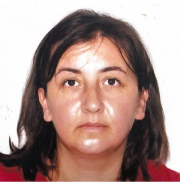Funded under the National Recovery and Resilience Plan (NRRP), Mission 4 Component 2 Investment 1.3, Theme 10.
Università degli Studi di Bari Aldo Moro
Università degli Studi di Bari Aldo Moro
Highlights
The University of Bari Aldo Moro (UNIBA) is one of the most renowned and prestigious Universities in the South of Italy, founded in 1924 (Edurank 517/14160 in the World, 17/88 in Italy; 109/1,621 for Nutrition and Food Science).
UNIBA, with currently over 43,000 students, is one of the largest generalist Universities in Italy with 22 Departments, covering all fields of research from basic to R&D, about 52 research and didactic centers and two schools: “Sciences and Technologies” and “Medicine”.
Leader of the spoke
Food safety of traditional and novel foods
Promoting a safe food innovation
Participant in the spoke
Leader of the work package
People involved
Angela Di Pinto
Annalisa De Boni
Antonio Moschetta
Carlo Zambonin
Cinzia Montemurro
Erica Pontonio
Fabio Minervini
Filomena Corbo
Gaetano Villani
Gesualdo Loreto
Gianluca Selicato
Giuseppe Celano
Giuseppina Marilia Tantillo
Grazia Tamma
Ilario Losito
Irene Canfora
Loredana Perla
Maria Antonietta Panaro
Maria Calasso

Maria De Angelis
Full Professor of Food Microbiology
Marialisa Clodoveo
Massimiliano Renna
Michele Vacca
Paola Pontrelli
Pasquale Filannino
Piero Portincasa
Pietro Santamaria
Rocco Roma
Ruggiero Francavilla
Sebastio Perrini
Simona Marianna Sanzani



